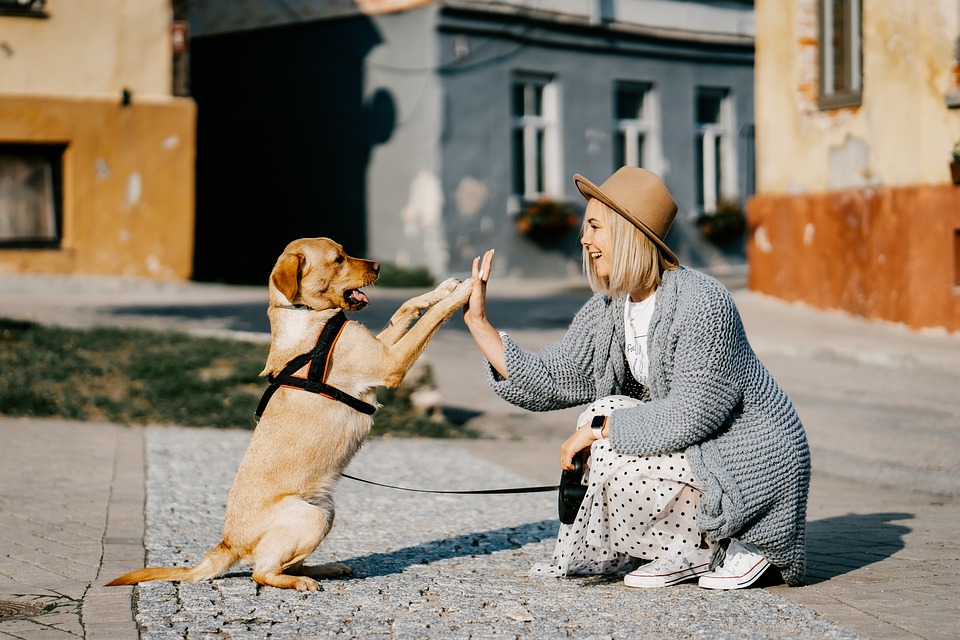Creating a comfortable and supportive environment for your senior dog is essential to ensure their quality of life and overall well-being. As dogs age, they may require some extra care and attention, and it’s important to address their specific needs. In this article, we will discuss some key aspects of providing a nurturing environment for your aging canine companion and answer some frequently asked questions about senior dog care.
One of the most important things you can do for your senior dog is to provide them with a cozy resting space. Senior dogs often spend a significant portion of their time sleeping and resting, so it’s crucial to give them a comfortable and supportive bed. Consider investing in an orthopedic bed that offers proper joint and back support. These beds are designed to alleviate pressure points and can greatly benefit dogs with arthritis or other joint issues. Place the bed in a quiet area of your home where your senior dog can retreat and enjoy some uninterrupted rest.
Maintaining a consistent routine is also vital for senior dogs. They thrive on routine as it provides them with a sense of stability and predictability. Keep your senior dog’s routine consistent by feeding them at the same time each day and establishing a regular schedule for walks, playtime, and potty breaks. This helps them feel secure and reduces stress, which can be beneficial for their overall health and well-being.
As dogs age, they may experience mobility issues such as arthritis or reduced muscle strength. To make their lives easier, ensure that your home is senior-dog friendly. Consider installing ramps or steps to help them access elevated areas like beds or sofas. Use non-slip mats or rugs on slippery surfaces to prevent accidents. If your senior dog has difficulty climbing stairs, create a cozy sleeping area on the main floor to avoid unnecessary strain.
Proper nutrition is crucial for senior dogs to maintain a healthy weight and support their aging bodies. Consult with your veterinarian to determine the best diet for your senior dog, as their nutritional needs may change over time. Often, senior dogs benefit from a diet rich in lean protein, healthy fats, and joint-supporting supplements. Avoid overfeeding and monitor their weight regularly to prevent obesity, which can exacerbate joint issues.
Mental stimulation is as important as physical exercise for dogs of all ages, including seniors. Engage your senior dog’s mind by providing puzzle toys, interactive feeders, or treat-dispensing toys. Engaging in training sessions or teaching them new tricks can also help keep their minds sharp and prevent cognitive decline. Regular mental stimulation can contribute to a happier and healthier senior dog.
Now let’s address some frequently asked questions about senior dog care:
Q1: How often should I take my senior dog for a walk?
A1: The frequency and duration of walks for your senior dog may depend on their overall health and fitness level. It is generally recommended to take them for shorter, more frequent walks rather than one long walk. Aim for two to three walks per day, adjusting the distance and intensity based on your dog’s capabilities.
Q2: My senior dog seems to be losing their vision. How can I help them navigate the house?
A2: Visual impairment is common in older dogs. Help your senior dog navigate the house by keeping furniture arrangements consistent and avoiding unnecessary obstacles. You can also use scent cues, such as essential oil diffusers, to help them locate important areas like their bed or food bowls.
Q3: My senior dog has become more anxious lately. What can I do to calm them down?
A3: Anxiety can be common in senior dogs, especially if they experience changes in their environment or routine. Provide them with a quiet and safe space where they can retreat when feeling anxious. You can also consider using calming aids, such as pheromone diffusers or anxiety wraps, and consult with your veterinarian for additional guidance.
Remember, each senior dog is unique, and their needs may vary. Regular veterinary check-ups, open communication with your veterinarian, and observing your dog’s behavior and comfort levels will help you provide the best possible environment for your aging canine companion. By creating a comfortable and supportive environment, you can ensure that your senior dog enjoys their golden years to the fullest.









